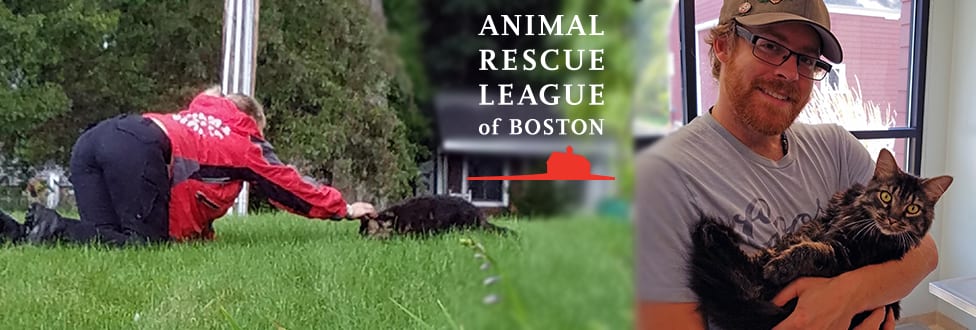It’s National ‘Check the Chip’ Day!
Sharon resident reunited with cat thanks to microchip
Today is National ‘Check the Chip’ Day, a day to remind pet owners of the importance of not only having a microchip implanted, but to make sure that all contact information is up to date. While not replacing a collar and tags, a microchip drastically improves the chances of being reunited with a pet should they become lost.
According to the American Veterinary Medical Association, a dog with a microchip is twice as likely to be returned to their owners, while a cat with a microchip is 20 times more likely to be returned.
Microchip Success Story
In February, Sharon resident Tyler Martin’s four-year-old brown tabby Bailey went missing. Bailey’s owner posted flyers around his neighborhood, but as the days and weeks passed, the hope for a reunion dwindled and the belief was that Bailey was gone for good.
Fast forward six months to August – the Animal Rescue League of Boston’s (ARL) Field Services team received a call from a resident in Norwood about a possible stray cat in their yard. Field Services agents responded to the scene and were able to corral the friendly cat, transporting the animal to ARL’s Dedham Animal Care and Adoption Center.
Bailey was scanned for a microchip and the information led ARL to Martin. When contacted, he was emotional and ecstatic to hear the news, but shocked that Bailey had been found on the other side of Route 95 in another town! He left work and was in Dedham in less than 30 minutes.
At ARL’s Dedham Animal Care & Adoption Center, Bailey was shy and wasn’t looking to interact with anyone, however when his owner arrived, a quick sniff of the hand created an instant reconnection, and the reunion was complete.
A happy reunion to say the least, and if Bailey had not been microchipped, it’s unlikely this reunion would’ve happened.
How the Microchip Works
A microchip is a tiny computer chip, about the size of a grain of rice, programmed with an identification number that is unique to your pet. It is non-toxic, non-allergenic, and will last the life of your pet with no maintenance required. The microchip is injected with a needle beneath the skin between the shoulder blades and is anchored in place as a thin layer of connective tissue forms around it.
Your pet’s identification number is entered into a national microchip registry, and you can think of the microchip as a permanent ID tag for your pet – but if you move or change phone numbers it’s important to make sure that your contact information is updated to increase the chances of a reunion.
When you adopt a dog or cat from ARL, along with being vaccinated, spayed or neutered, medically and behaviorally evaluated, the animal will also have a microchip implanted before you take them home.





